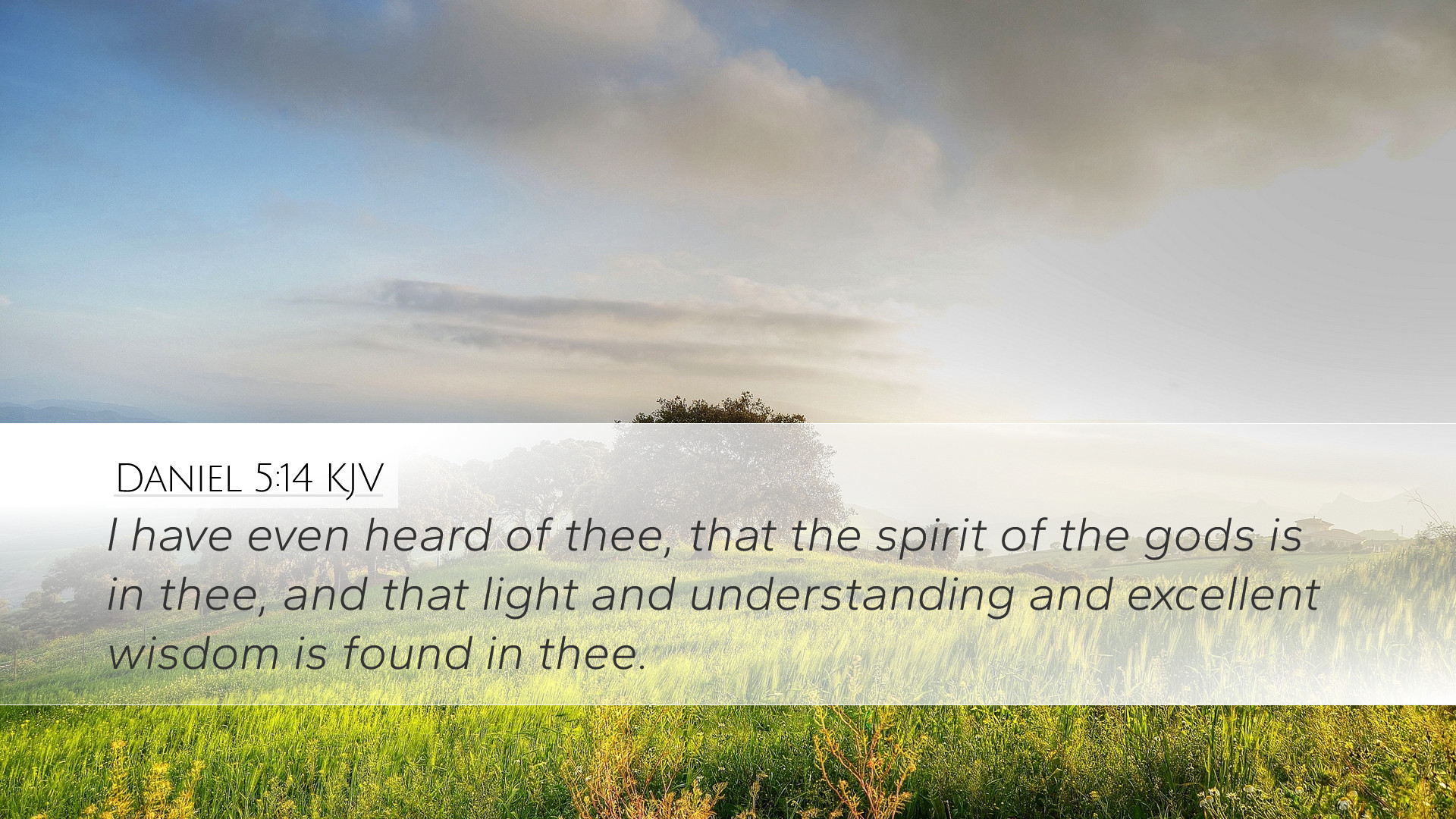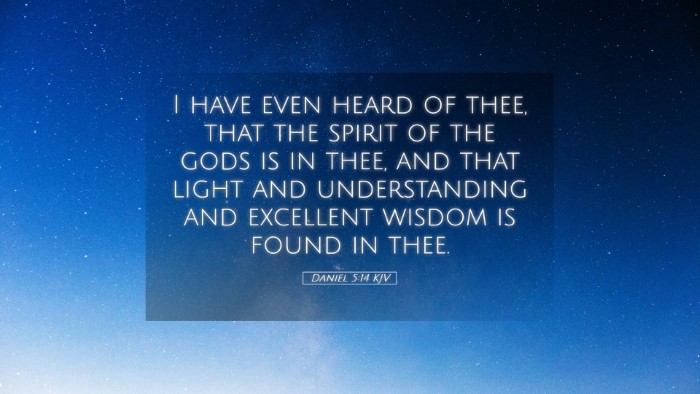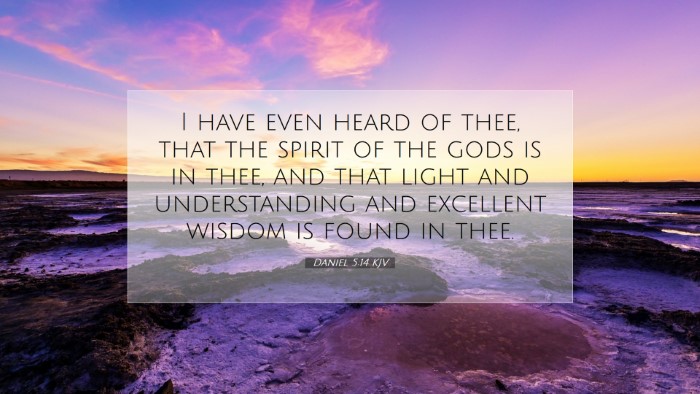Commentary on Daniel 5:14
Daniel 5:14 states, "I have heard of you, that the spirit of the gods is in you, and that you have insight, intelligence, and outstanding wisdom." This verse occurs in the narrative of Belshazzar’s feast, where the king's arrogance and disobedience lead to a divine judgment that is revealed through Daniel.
Contextual Background
The fifth chapter of Daniel presents a radical contrast between the folly of worldly kings, represented by Belshazzar, and the wisdom of God working through His faithful servant, Daniel. The setting is during a lavish banquet where Belshazzar, king of Babylon, insults God by using the sacred vessels taken from the temple in Jerusalem.
The Nature of Insight and Wisdom
In this verse, Belshazzar acknowledges Daniel's exceptional qualities, despite his own impious behavior.
-
Spirit of the Gods: The mention of “the spirit of the gods” highlights Daniel’s connection to the divine. Matthew Henry comments that Daniel possessed a spirit that was not only remarkable in human attributes but was imbued with spiritual insight, making him a vessel for God’s wisdom.
-
Insight and Intelligence: The characteristics attributed to Daniel - insight and intelligence - underscore the significance of divine wisdom in navigating complex issues. Albert Barnes points out that true understanding comes from a deeper fear of God, which Daniel exemplified through his life and service, setting a standard for spiritual leaders.
-
Outstanding Wisdom: Adam Clarke emphasizes that Daniel's wisdom did not stem from human study but from a divine source. His ability to interpret dreams and visions was rooted in a close relationship with God, a principle that remains critical for modern scholars and theologians who seek to apply biblical truth in their contexts.
Lessons for Leaders and Believers
The interactions between Belshazzar and Daniel provide vital teachings for leaders in both secular and religious frameworks. They remind us of the importance of humility before God.
-
Humility: Leaders should seek wisdom from the divine rather than relying solely on their understanding or strength. Daniel’s wisdom came from his submission to God and his integrity, which contrasts starkly with Belshazzar's prideful behavior.
-
The Role of the Divine: Daniel’s life illustrates that divine insight is essential in times of crisis. For pastors and teachers, the application of this truth can serve as a reminder to turn to God in their leadership roles, emphasizing prayer and reliance on the Holy Spirit for direction.
-
Accountability to God: Belshazzar ignored God’s sovereignty. The consequence of his arrogance serves as a warning to all who lead. Clarke reflects that negligence of divine authority invites judgment, as seen in the eventual collapse of Babylon.
Theological Implications
The acknowledgment of Daniel’s capabilities by Belshazzar points to a broader theological truth: God equips His faithful servants for His purposes even within hostile environments. This leads to several crucial implications:
-
God’s Sovereignty: The unfolding events in Daniel illustrate God's supreme authority over kingdoms and rulers. Belshazzar's recognition, even begrudgingly, of the divine power operating through Daniel reinforces the idea that God remains actively involved in human affairs.
-
Revelation of God’s Purpose: The chapter foreshadows God's ultimate plan for mankind. Barnes highlights that God uses His servants to communicate His will, often drawing attention to the inadequacy of human governance devoid of divine guidance.
-
Judgment and Mercy: The interplay between judgment for sin and the mercy extended through opportunities for repentance is evident. Daniel stands as God's messenger, representing both God's holiness and the chance for redemption amidst impending judgment.
Conclusion
In Daniel 5:14, we witness a profound moment in biblical history that offers rich insights relevant to believers today. From understanding the nature of divine wisdom to the implications of accountability and leadership, this verse serves as a potent reminder of God’s presence and sovereignty. For pastors, students, theologians, and scholars, it invites an ongoing reflection on their roles and responsibilities in a world that often mirrors the challenges faced by Daniel amidst the decadence of Babylon.


